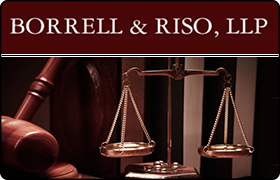Richmond County, NY Child Support Lawyers
Sponsored Law Firm
-
 x
x

Click For More Info:
-
Borrell & Riso, LLP
1500 Hylan Boulevard Staten Island, NY 10305» view mapDivorce & Family Law Your #1 Choice for Legal Services
Our firm takes great pride in offering you a wide range of specialized legal services. Our goal is to achieve the highest results in an efficient, professional, and effective manner.
800-854-5701
Francine Pickett Cohen
Divorce & Family Law, Child Custody, Child Support, Domestic Violence & Neglect
Status: In Good Standing

 Jeffrey Borrell Staten Island, NY
Jeffrey Borrell Staten Island, NY Our LawyersAbout Their Expertise
Our LawyersAbout Their Expertise ServicesPractice Areas
ServicesPractice Areas
